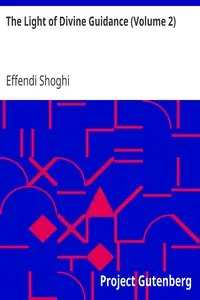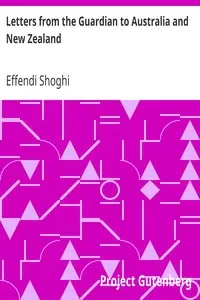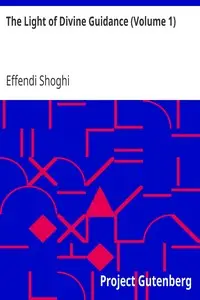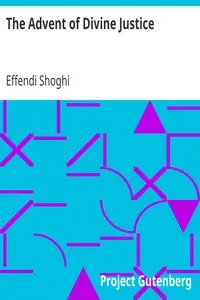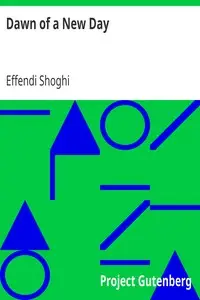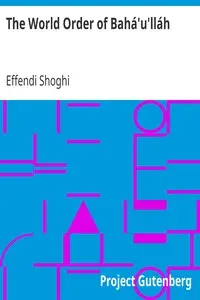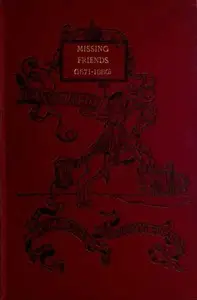"Arohanui: Letters from Shoghi Effendi to New Zealand" by Shoghi Effendi is a compilation of personal letters offering direction and affection to the Baháʼís of New Zealand as their community took root during the 20th century. These letters show the author's appreciation for the community's persistence, support their spiritual development, and promote community growth through historical accounts of the religion's beginnings in the area. Opening with the meaning of the Maori term "Arohanui," the collection speaks of perseverance, spiritual development, and group development. The letters offer both personal stories and spiritual guidance, establishing a basic understanding of the Baháʼí community as it grows in New Zealand.

Arohanui: Letters from Shoghi Effendi to New Zealand
By Effendi Shoghi
Read intimate letters that express support and encouragement for a growing religious community in a far-off land.
Summary
About the AuthorShoghí Effendi (; Persian: شوقی افندی; 1 March 1897 – 4 November 1957) was an Ottoman-born Iranian religious figure and the Guardian of the Baháʼí Faith from 1921 to 1957. As the grandson and successor of ʻAbdu'l-Bahá, he was responsible for creating a series of teaching plans that oversaw the expansion of the Baháʼí Faith to a number of new countries, and also translated many of the written works of crucial Baháʼí leaders. Upon his death in 1957, the Hands of the Cause, which included his Canadian wife Rúhíyyih Khánum, took on the role of overseeing the transfer of the religion's supreme legal authority to the Universal House of Justice, which has held elections every five years since 1963.
Shoghí Effendi (; Persian: شوقی افندی; 1 March 1897 – 4 November 1957) was an Ottoman-born Iranian religious figure and the Guardian of the Baháʼí Faith from 1921 to 1957. As the grandson and successor of ʻAbdu'l-Bahá, he was responsible for creating a series of teaching plans that oversaw the expansion of the Baháʼí Faith to a number of new countries, and also translated many of the written works of crucial Baháʼí leaders. Upon his death in 1957, the Hands of the Cause, which included his Canadian wife Rúhíyyih Khánum, took on the role of overseeing the transfer of the religion's supreme legal authority to the Universal House of Justice, which has held elections every five years since 1963.

